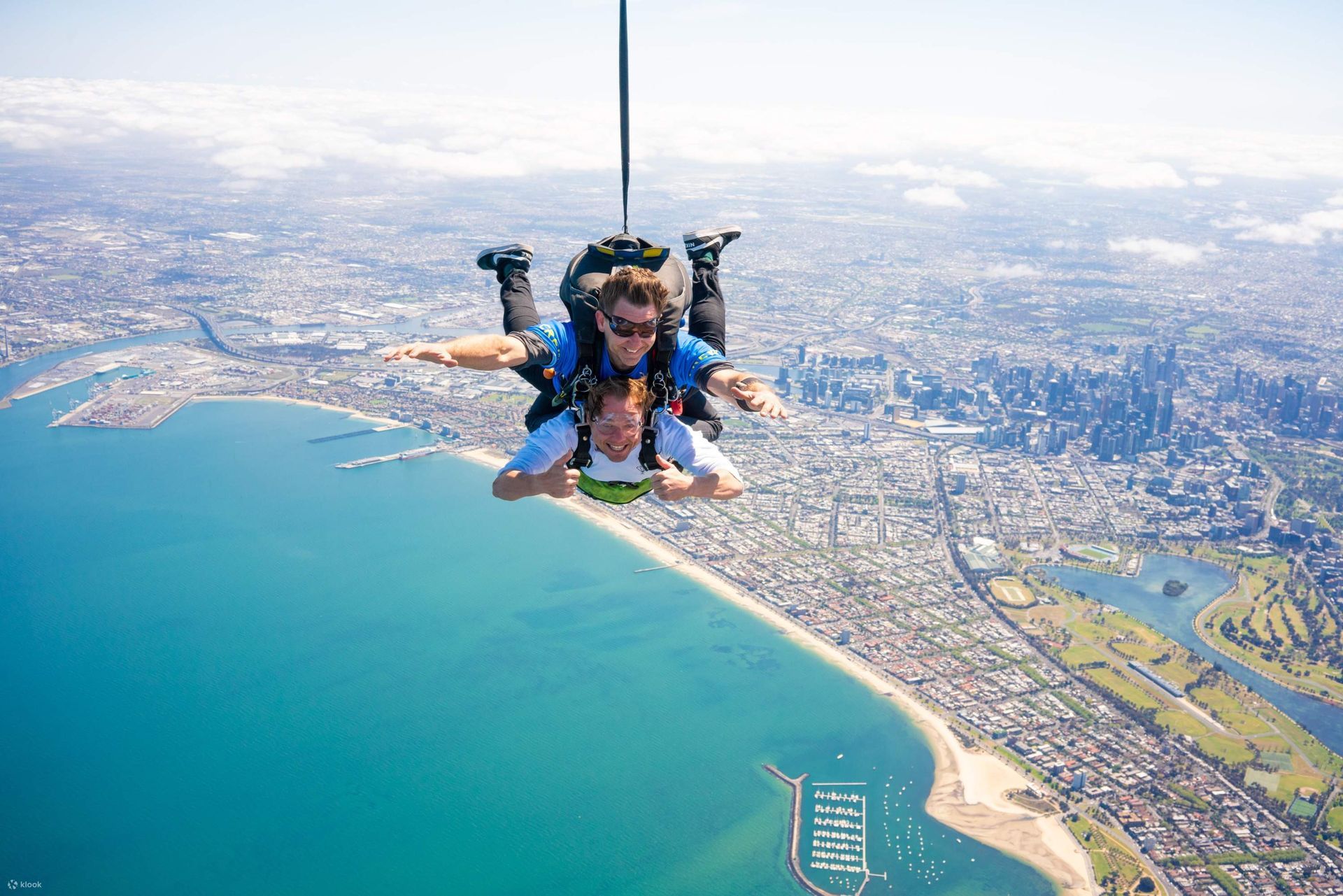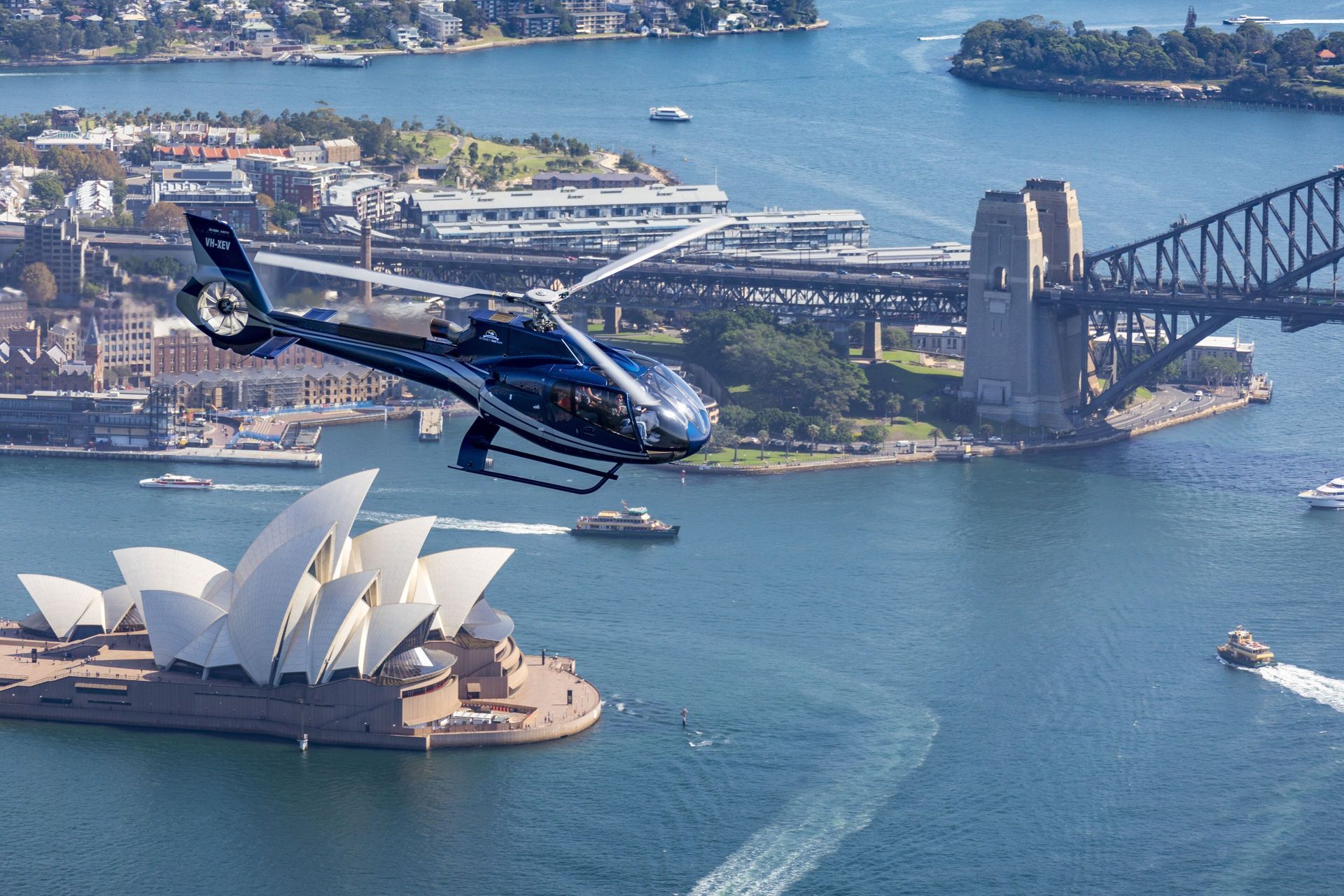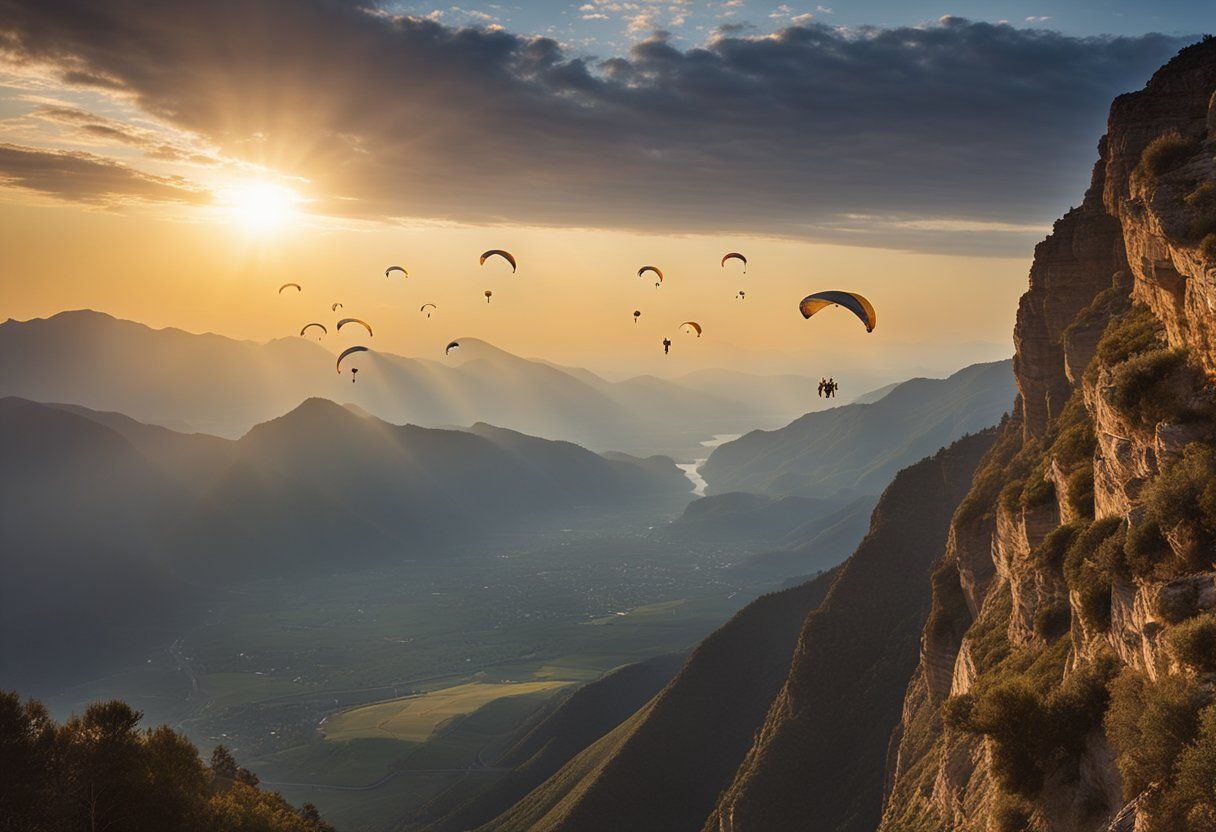To share
Thinking about skydiving in Australia?
It can seem daunting at first.But don't worry!We have the tips you.You'll be ready to dive in no time!Learn what to expect and how to prepare.From steps to your first jump, let's dive in.

Welcome to skydiving in Australia
Australia offers some of the most breathtaking skydiving experiences in the world. With its diverse landscapes, from pristine beaches to vast outback, skydiving here provides a unique perspective of this beautiful country. Whether you're a thrill-seeker or someone looking to conquer their fears, skydiving in Australia is an unforgettable adventure.
Why skydive in Australia?
Skydiving in Australia presents several advantages:
- Stunning views: Jump over the Great Barrier Reef, Sydney Harbour, or the red sands of the Outback.
- World-class facilities: Australia boasts some of the best skydiving schools and drop zones globally.
- Perfect weather: With many sunny days throughout the year, Australia offers ideal conditions for skydiving.
- Safety standards: Australian skydiving operators adhere to strict safety regulations, ensuring a secure experience for beginners.
"Skydiving in Australia isn't just an adrenaline rush; it's a chance to see the country from a whole new perspective."
1. Preparing for your skydive
Choosing the right skydiving school
Selecting a reputable skydiving school is crucial for a safe and enjoyable experience. Consider the following factors:
- Accreditation: Ensure the school is certified by the Australian Parachute Federation (APF).
- Experience: Look for schools with a proven track record and experienced instructors.
- Reviews: Read testimonials from previous customers to gauge their experiences.
- Location: Choose a drop zone that offers the views and experience you're looking for.
Health and fitness requirements
While skydiving is accessible to many, there are some health and fitness considerations:
- Age: Most operators require participants to be at least 18 years old.
- Weight: There are usually weight limits, typically around 100 kg (220 lbs), for safety reasons.
- Physical condition: You should be in reasonably good health, without serious heart conditions or recent surgeries.
- Flexibility: Basic flexibility is required to assume the correct body position during freefall.
"Always consult with your doctor if you have any concerns about your fitness to skydive."
Booking your jump
Once you've chosen your school and ensured you meet the requirements, it's time to book your jump:
- Timing: Consider the season and weather conditions. Spring and autumn often offer the best skydiving weather in Australia.
- Advance booking: Popular locations can get booked quickly, especially during peak seasons.
- Package options: Many schools offer photo and video packages. Consider these to capture your experience.
- Cancellation policy: Understand the school's policy regarding weather-related cancellations and rescheduling.
Remember, skydiving is weather-dependent, so flexibility with your schedule can be beneficial. With proper preparation and the right mindset, your first skydive in Australia will be an exhilarating and memorable experience.
2. What to Expect on the Day
Arrival and Check-in Process
When you arrive at the skydiving center, you'll go through a check-in process. This typically involves:
- Presenting your identification
- Filling out necessary paperwork
- Confirming your reservation
- Meeting your instructor
The staff will guide you through each step, ensuring you're comfortable and prepared for the experience ahead.
Safety Instructions
Safety is paramount in skydiving. You'll receive comprehensive safety instructions, including:
- Proper body positioning during freefall
- How to read and respond to hand signals
- Emergency procedures
- Landing techniques
Pay close attention to these instructions, as they're crucial for a safe and enjoyable jump.
Gearing Up: What to Wear
Proper attire is essential for a comfortable skydiving experience. Consider wearing:
- Comfortable, athletic clothing
- Closed-toe shoes that won't slip off
- Layers, depending on the weather
- No loose jewelry or accessories
The skydiving center will provide you with a jumpsuit and other necessary equipment.
3. The Skydiving Experience
The Airplane Ride Up
As you ascend in the aircraft, you'll likely experience a mix of excitement and nervousness. During this time:
- Your instructor will review key points
- You'll have a chance to take in the views
- The anticipation will build as you reach jump altitude
Remember to breathe and stay focused on the instructions you've received.
The Jump: Exit and Freefall
The moment of truth arrives as you prepare to exit the aircraft. Here's what to expect:
- Your instructor will guide you through the exit
- The initial sensation of freefall is intense but exhilarating
- You'll reach speeds of up to 200 km/h
- The freefall typically lasts about 60 seconds
Focus on maintaining the body position you learned during training and enjoy the incredible rush.
The Canopy Ride and Landing
After your instructor deploys the parachute:
- The sudden deceleration might surprise you
- You'll have time to take in the breathtaking views
- Your instructor may let you steer the parachute
- As you approach the ground, follow landing instructions carefully
The canopy ride offers a peaceful contrast to the adrenaline-fueled freefall, allowing you to fully appreciate the experience.
Remember, while skydiving is an extreme sport, following instructions and trusting your experienced instructor will help ensure a safe and unforgettable adventure.
4. Tips for a Successful Skydive
Staying Calm and Relaxed
Maintaining composure during your first skydive is crucial for a positive experience. Here are some strategies to help you stay calm:
- Practice deep breathing exercises before and during the flight
- Focus on the present moment rather than anticipating the jump
- Trust in your training and the expertise of your instructors
- Remind yourself of the safety measures in place
Remember: It's normal to feel nervous. Embrace the excitement and trust in your preparation.
Maintaining Proper Body Position
Correct body position is essential for a safe and enjoyable skydive. Key points to remember include:
- Arch your back to create stability during freefall
- Keep your arms and legs spread in an "X" formation
- Maintain a relaxed but firm posture
- Follow your instructor's guidance for adjustments
Practicing these positions on the ground before your jump can help reinforce muscle memory.
Enjoying the View and the Experience
While safety is paramount, don't forget to savor the incredible experience:
- Take in the breathtaking views of Australia's landscape
- Be present in the moment and fully immerse yourself
- Smile for the camera if you've opted for a video package
- Reflect on your achievement once you've landed safely
5. Common Beginner Questions
Is Skydiving Safe?
Skydiving, when conducted with proper training and equipment, is a relatively safe activity. In Australia, the sport is regulated by the Australian Parachute Federation (APF), which enforces strict safety standards. Some key safety measures include:
- Rigorous training for instructors and regular equipment checks
- Use of modern, reliable parachute systems with backup options
- Comprehensive pre-jump briefings for all participants
- Adherence to weather restrictions and jump altitude regulations
While no activity is without risk, the skydiving industry continually works to minimize potential hazards.
What If I'm Scared of Heights?
It's common for first-time skydivers to have concerns about heights. However, many people find that the experience of skydiving is different from other height-related situations. Consider these points:
- The altitude during a skydive often feels abstract rather than threatening
- Your focus will likely be on the experience rather than the height
- Tandem instructors are trained to support nervous jumpers
- Many people with a fear of heights have successfully completed skydives
If you're particularly concerned, discuss your fears with your instructor before the jump. They can provide additional support and guidance.
Can I Skydive with Glasses/Contacts?
Yes, it's possible to skydive while wearing glasses or contact lenses. Here's what you need to know:
- For glasses wearers, special goggles that fit over your eyewear are provided
- Contact lens users can skydive without any additional equipment
- It's recommended to secure your glasses with a strap for added security
- Consider bringing a spare pair of glasses or contacts for after the jump
Inform your instructor about your eyewear needs during the pre-jump briefing to ensure appropriate accommodations are made.
6. Special Considerations
Weather and Skydiving
Weather plays a crucial role in skydiving safety and experience. In Australia, conditions can vary significantly across different regions. Here are key weather factors to consider:
- Wind speed: Generally, wind speeds below 14 knots (26 km/h) are ideal for skydiving.
- Cloud cover: Clear skies or high cloud bases are preferred for better visibility.
- Temperature: Dress appropriately, as temperatures can drop significantly at altitude.
- Precipitation: Rain or snow can make skydiving unsafe and uncomfortable.
Always check the weather forecast before your jump and be prepared for potential rescheduling due to adverse conditions.
Weight and Age Limits
Skydiving centers in Australia typically have specific weight and age restrictions:
- Weight limits: Most centers have a maximum weight limit of around 95-100 kg (210-220 lbs), including clothing and equipment.
- Age restrictions: The minimum age for skydiving in Australia is typically 12 years old for tandem jumps, with parental consent required for minors.
It's important to note that these limits can vary between different skydiving operators, so always check with your chosen center beforehand.
Medical Conditions and Skydiving
Certain medical conditions may prevent you from skydiving or require additional precautions:
- Heart conditions
- Epilepsy
- Recent surgeries or injuries
- Pregnancy
If you have any medical concerns, consult with your doctor before booking a skydive. Most reputable skydiving centers will require you to fill out a medical questionnaire before your jump.
7. Capturing the Moment
Photos and Videos of Your Jump
Preserving memories of your skydiving experience is a great way to relive the excitement:
- Professional photography: Many skydiving centers offer professional photo and video packages.
- Personal cameras: Some centers allow experienced skydivers to use their own cameras, but this is typically not permitted for beginners or tandem jumps.
- Quality of footage: Professional videos often include multiple camera angles and high-quality editing.
Consider the cost of photo and video packages when budgeting for your skydive. While it may seem expensive, many skydivers find these mementos well worth the investment.
Sharing Your Experience with Friends
After your jump, you'll likely want to share your experience with others:
- Social media: Most skydiving centers can provide digital copies of your photos and videos, perfect for sharing on platforms like Instagram or Facebook.
- Skydiving communities: Consider joining online skydiving forums or local clubs to connect with other enthusiasts and share your experiences.
- Personal storytelling: Your skydiving adventure will provide you with a thrilling story to share with friends and family for years to come.
Remember to respect the privacy of other jumpers when sharing your experience and always obtain permission before posting photos or videos that include others.
8. Post-Jump Experience
Reliving the Adrenaline Rush
After your first skydive, you'll likely experience a surge of emotions and adrenaline. Many skydivers report feeling an incredible sense of accomplishment and euphoria. It's common to want to relive this experience through:
- Watching your skydive video repeatedly
- Sharing your experience with friends and family
- Looking through your skydive photos
- Discussing your jump with fellow skydivers
"The post-jump feeling is indescribable. It's a mix of relief, excitement, and pure joy that stays with you long after you've landed." - Experienced Australian skydiver
Becoming a Frequent Jumper
For many, the first jump is just the beginning. If you find yourself captivated by the experience, consider:
- Enrolling in a skydiving course to earn your license
- Setting personal goals for number of jumps or new skills to learn
- Exploring different drop zones across Australia
- Investing in your own skydiving gear as you progress
Joining a Skydiving Community
Skydiving is more than just an individual sport; it's a community. To fully embrace the skydiving lifestyle:
- Join local skydiving clubs or associations
- Attend skydiving events and competitions
- Participate in online skydiving forums and social media groups
- Consider volunteering at your local drop zone
Conclusion
Reflecting on Your Experience
As you look back on your skydiving journey:
- Consider how the experience has impacted you personally
- Reflect on the challenges you overcame
- Think about how skydiving has changed your perspective on life
Encouraging Others to Try Skydiving
Share your experience with others:
- Offer advice and support to those considering their first jump
- Share your stories and photos responsibly on social media
- Be an ambassador for the sport, emphasizing safety and proper training
"Skydiving isn't just about the thrill; it's about pushing your boundaries and discovering what you're capable of. It's a journey of self-discovery that I encourage everyone to experience at least once." - Australian Skydiving Instructor




